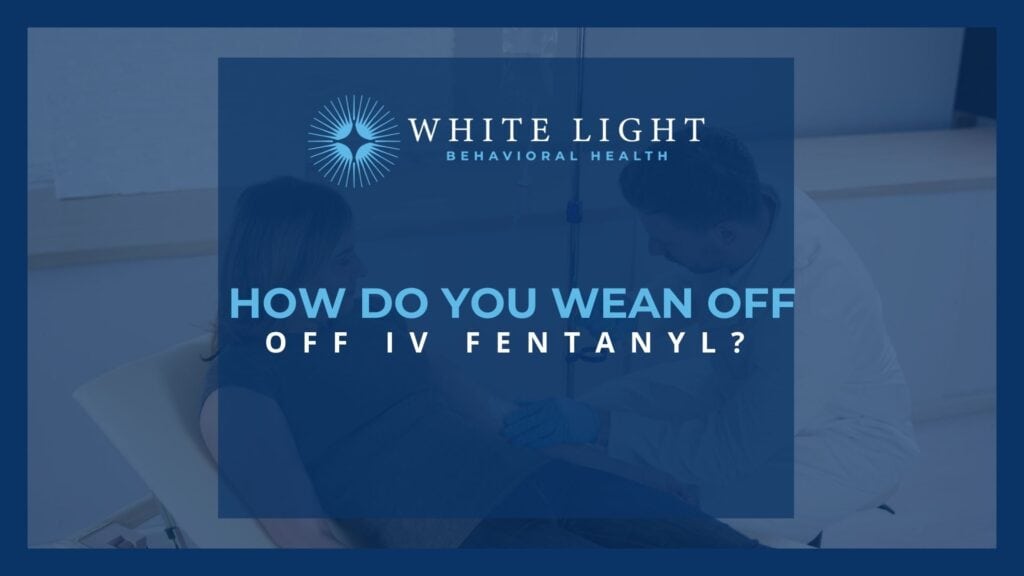Fentanyl: What You Need to Know
Fentanyl is a powerful and highly addictive synthetic opioid medication that has become increasingly common in managing acute and chronic pain. Despite its efficacy, due to its strength, it carries with it the risk of physical dependence and addiction. If you have been taking IV fentanyl for pain management and need to discontinue the medication, you should know a few things.
Transitioning from using an opioid drug such as fentanyl requires physical and emotional support. It is essential to find qualified healthcare professionals who understand what you are going through, so you can get accurate advice on tapering down your dose. Your physician may also refer you to a mental health specialist if they believe additional psychological support would be beneficial during this process.
What Does Fentanyl Do?
Fentanyl is a synthetic opioid drug that has been widely used as a powerful painkiller in the medical field since its discovery in 1959. It is significantly more potent than morphine and has been employed to help manage the most severe pain cases, including end-of-life and palliative care.
In recent years, fentanyl has been responsible for an abuse and addiction epidemic due to its potency and availability on the streets. Fentanyl is estimated to be around 50 times more potent than heroin, making it a hazardous drug for those who use it recreationally.
When appropriately administered by medical professionals, fentanyl can relieve chronic pain conditions and acute pains associated with surgery and cancer treatment. It also helps control shortness of breath associated with pulmonary disorders such as COPD.
As with all opioids, however, the body builds up a tolerance quickly if taken frequently or over a prolonged period, making using the drug habit-forming and potentially life-threatening if abused. Furthermore, even when appropriately prescribed by medical professionals, the risk of overdosing on fentanyl is high due to its potency.
Fentanyl Addiction
Fentanyl addiction is a form of opioid use disorder in which an individual compulsively and chronically uses fentanyl. Fentanyl is a powerful synthetic opioid drug estimated to be 50-100 times stronger than morphine. While medical professionals have long prescribed the substance to treat severe pain, it can also cause intense euphoria when abused and has become increasingly available on the black market. As a result, many people have developed fentanyl addiction despite its high potency and risk of overdose.
Fentanyl addiction usually begins with a legitimate prescription or recreational drug use. Since fentanyl is so potent, individuals may quickly develop tolerance to the substance and need increasingly larger doses to achieve the same effect. As time passes, people often need more of the drug to feel normal and maintain basic functioning; this indicates a transition from occasional use to a full-fledged addiction.
As with any addiction, individuals suffering from fentanyl addiction are prone to several physical and psychological detrimental effects. Many experience intense cravings for the drug, even after going through a period of abstinence or attempting treatment for their addiction; withdrawal symptoms such as nausea, fatigue, restlessness, and insomnia are also common.
Long-term consequences of using the drug can include liver damage, increased risk of heart attack or stroke, suppressed immune system function, damaged respiratory system, and depression or anxiety disorders due to neurochemical imbalances caused by prolonged abuse of opioids.
Fentanyl Withdrawal
Fentanyl withdrawal is a condition experienced by people who have been using the synthetic opioid for an extended period and suddenly stop or drastically reduce their dosage. People with fentanyl withdrawal may experience various symptoms, including but not limited to nausea, anxiety, restlessness, tremors, and body aches.
Fentanyl works by binding to receptors in the brain that release dopamine which causes feelings of pleasure and relaxation; when a person abruptly stops taking it, they can experience withdrawal due to their body no longer receiving that stimulation. As such, many people find it difficult to discontinue their fentanyl use without professional medical help and monitoring.
Fentanyl Withdrawal Methods
Fentanyl withdrawal can be a challenging experience, but there are effective ways to manage it. Fentanyl is an opioid drug with substantial effects and can be incredibly addictive. People who have become dependent on fentanyl may suffer from a range of withdrawal symptoms when they try to stop taking the drug. The best way to manage these symptoms is by tapering and seeking medication-assisted treatment.
Tapering
This is the gradual reduction of opioid drugs to minimize withdrawal symptoms’ severity. This approach can help make the transition from fentanyl dependence easier and less severe and prevent relapse.
Tapering should only be done with medical supervision, as it involves precise dose reductions to reduce your body’s dependence on opioids safely. A doctor or healthcare professional can provide support throughout the process and prescribe medications to help alleviate some of the discomfort associated with opioid withdrawal.
Medication-Assisted Treatment (MAT)
Medication-assisted treatment (MAT) is another effective way of managing fentanyl withdrawal. MAT combines medications such as methadone and buprenorphine with counseling services to provide comprehensive treatment for opioid dependence and addiction.
These medications block opioid receptors in the brain, so patients don’t experience the cravings and unpleasant withdrawal symptoms associated with opioids. It’s important to note that MAT isn’t a cure-all solution; it provides support during this challenging period while also allowing you to continue working towards recovery and a drug-free lifestyle.
Seeking Help for IV Fentanyl Addiction
The key to managing fentanyl withdrawal is finding a combination of methods that works for you. Tapering, coupled with medication-assisted treatment, is one of the most successful strategies for managing fentanyl withdrawal in the long term.
Still, it’s important to remember that every individual responds differently. Finding a doctor or healthcare provider who can provide personalized care and advice tailored specifically to your situation is essential. With appropriate care, support, and guidance from a doctor or health professional, managing fentanyl withdrawal is possible, even if it may feel like an impossible challenge.

Share This Post



